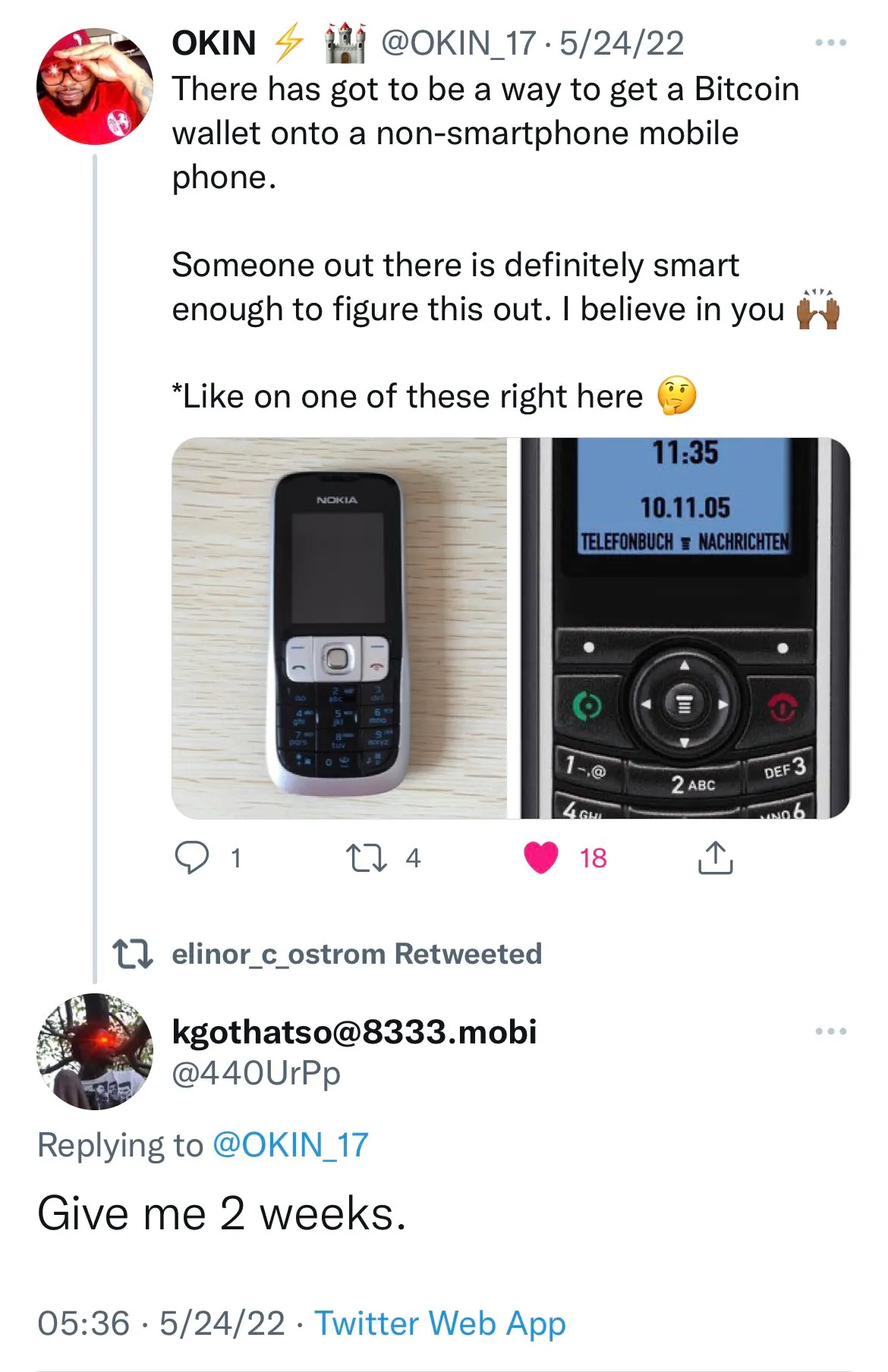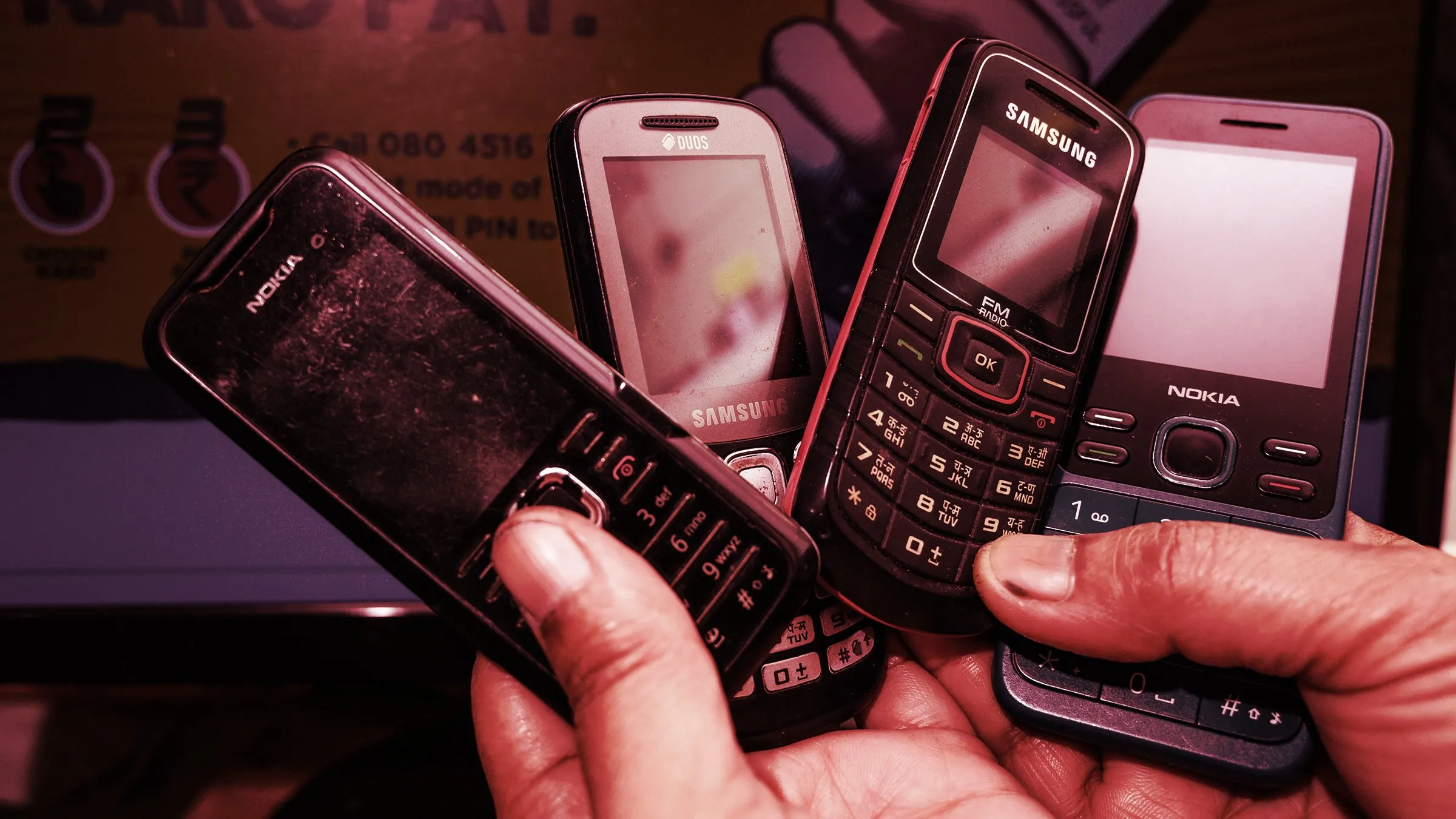How have nearly 3,000 Africans adopted Bitcoin—often called “the internet of money”—without actually having access to the internet?
The answer lies with Machankura, a tool built by software developer Kgothatso Ngako for using Bitcoin with nothing but a feature phone. No computer, smartphone, or internet service is required.
“I had set up a raspberry pi running both a Bitcoin and Lightning node and was trying to figure out what I could build on top of it,” Ngako told Decrypt via direct message. “A USSD project was intriguing because quite a lot of African Bitcoiners were already talking about building a wallet for feature phone users.”

USSD stands for Unstructured Supplementary Service Data, a protocol used in telecommunications networks for sending short text messages. It's similar to Interactive Voice Response, with which a mobile network operator’s customer service might tell you which numbers to press for accessing a particular service, but in text form.
With Machankura, mobile phone users across a range of African countries can access the app by dialing a specific code, depending on their location and the service they wish to access. Its services include sending or receiving Bitcoin, checking one’s balance, or even bartering Bitcoin for goods and services on Bitrefill.
The tool can even interact with the Lightning Network, a layer-2 payments system that enables instantaneous and virtually free Bitcoin transactions.
Ngako chose a UX solution called The Lightning Address to enable phone users to easily identify lightning addresses for both sending and receiving satoshis. Standard lightning invoices look like long random strings of text that must be copied and pasted, a function that feature phone users don’t have.
The developer said there are now 2,900 people using Machankura, spread across 8 countries in which it is active: Ghana, Kenya, Malawi, Namibia, Nigeria, South Africa, Uganda, and Zambia. Going by figures previously posted from the app’s Twitter page, that’s a 10X increase since August.
As Bitcoin adoption grows, tools like Machankura could expand to serve an estimated 2.9 billion people on Earth who still lack internet access.
“I believe the tool could help ‘Bitcoin the un-Bitcoined,’” opined Ngako. “Payment technology is very dependent on network effects. Both receiver and sender need the ability to send and receive for the payment technology to be adopted.”

